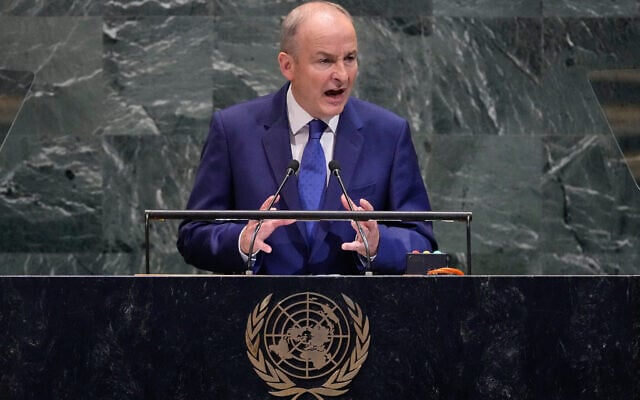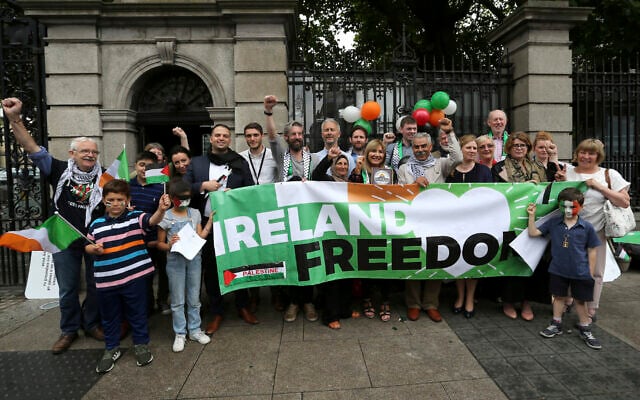


DUBLIN, Ireland — The frontrunner to become Ireland’s next president has criticized the government for inaction on a planned law to impose sanctions on Israeli settlements in protest over Israel’s military campaign against Hamas in Gaza.
Catherine Connolly, an independent left-wing lawmaker backed by the main opposition Sinn Fein party, urged Dublin not to buckle to pressure from big US companies by watering down the law and stopping just a trickle of trade in goods, not services.
She was speaking before US President Donald Trump said on Wednesday night that Israel and Hamas had reached a deal for a ceasefire in Gaza and a hostage release under his plan for ending the two-year-old war in the Strip.
Ireland’s government has been fiercely critical of Israel’s offensive in Gaza against Hamas. But sources told Reuters the bill is set to be blunted, however, after lobbying by US businesses.
“We cannot allow the government to fail the Palestinian people on this,” she told Reuters, accusing the center-right governing coalition partners Fianna Fail and Fine Gael of “dragging their feet.”
“I will continue to press for the occupied territories bill to include services, as it was always intended,” Connolly said, calling any limitation to goods an “appalling capitulation to corporate interests” and an “unforgivable betrayal.”
Ireland’s president is largely a figurehead but can exercise influence over the government, having powers to refer proposed new laws to the supreme court to determine whether they are in line with the constitution, although this is rare.
Connolly leads in opinion polls ahead of the October 24 vote.
Connolly’s comments were echoed by Frances Black, an independent member of the upper house of parliament who first brought forward the legislation to impose sanctions over Israeli settlements seven years ago.
“The government needs to be… strong on this. They need to be courageous. It’s absolutely vital that we have goods and services on the bill,” Black told Reuters. “We need to match our words with action.”
The Irish government declined to comment.
Ireland has been preparing to impose sanctions over trade with Israeli settlements for a year, provoking criticism from Israel, international company lobby groups and threats of reprisal from US lawmakers.
Earlier this week, a group of US lawmakers wrote to Irish Prime Minister Micheál Martin, saying that passing the bill would damage US-Irish relations and impact American companies in Ireland.
Dublin is also pushing for a swift vote on proposals from the EU Commission to suspend free-trade arrangements on Israeli goods, although getting this through in the face of German opposition is in question.
After Ireland became the first EU country to commit to trade restrictions last October, Slovenia introduced a ban on imports of goods in August, while Belgium, Spain and the Netherlands announced similar bans on goods last month.
Ireland’s relations with Israel have been fraught. Last December, Israel shut its embassy in Dublin amid a row over Ireland’s criticism of its war in Gaza, including Ireland’s recognition of a Palestinian state last year.



